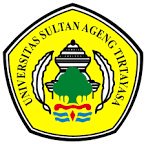EKSISTENSI PENYULUH PERTANIAN DALAM PELAKSANAAN KOMUNIKASI PEMBANGUNAN PARTISIPATIF UNTUK KEBERDAYAAN PETANI
Abstract
Agricultural development continues to develop in tune with the development of agricultural innovation technology. In line with this, farmers are required to increase competitiveness in this era of globalization, therefore it is important to use participatory agricultural development communication by prioritizing local communities with their cultural dimensions as holders of power. The new communication paradigm places farmer groups as subjects of development that were previously always the object of development, the focus of agricultural development is directed at local communities. Agricultural instructors in their activities as agents of change in development always provide direction that can awaken the awareness of the farming actors. In addition, agricultural extension agents provide a forum or facilitate farmers to conduct training in the field of rice farming management, in particular the use of agricultural technology with innovation that can lead to increased productivity of processed rice products. The aim of this study: 1. Analyzing the role of agricultural extension agents in their existence in increasing agricultural development for the empowerment of farmer groups ? 2. Analyzing the relationship between agricultural extension officers in the implementation of participatory development communication for the empowerment of farmer groups. This study uses the positivistic paradigm using the survey method. Quantitative research is carried out in two districts in 8 sub-districts which are the object of research or unit of analysis, is a farmer group by taking a sample of 170 farmer groups. The research data were analyzed descriptively and explanatively. The results of the study are: a. The overall role of agricultural extension agents is in the high category; b. There is a significant correlation between agricultural extension and the implementation of participatory development communication.
Keywords
Full Text:
PDFReferences
Aminah S. 2013. Model Komunikasi Partisipatif untuk Keberdayaan Patani Kecil dalam Mewujudkan Ketahanan Pangan di Kabupaten Halmahera Barat [disertasi]. Bogor (ID): Institut Pertanian Bogor.
Berlo DK. 1960. The Process of Communication An Introduction to Theory and Practice.
New York (US). Michigan State University.
Bessette G. 2004. Involving the community A Guide to Participatory Developmen Communication.Penang. International Development Research Centre.
People, land, and water : participatory development communication for Natural Resource Management.Penang. International Development Research Centre.
[BPS] Badan Pusat Statistik. 2014. Kulon Progo dalam Angka. Kulon Progo (ID): Badan Pusat Statistik .
Chitnis KS. 2005. Communication for Empowerment and Participatory Development: A Social Model of Health in Jamkhed, India.[dissertation]. India : ProQuest Information and Learning Company.
Devito JA. 1997. Human Communication. Jakarta (ID). Profesional Books.
Hermann B. 2011. Crucial factors in the implementation of participatory development communication in Papua New Guinea. Contemporary PNG Studies Research Journal .15: 115. DWU
Kriyantono R. 2006. Teknik Praktis Riset Komunikasi. Jakarta (ID). Pranada Media Group. Kementerian Pertanian. 2013. Keputusan Direktur Jenderal Tanamana Pangan Nomor : 6/HK.310/C/1/2013. Tentang Pedoman Teknis Sekolah lapangan Pengelolaan Tanaman Terpadu (SL-PTT) Padi dan Jagung. Jakarta (ID): Direktur Jenderal
Tanaman Pangan.
Kementerian Pertanian. 2015. Pedoman Teknis GP-PTT Padi. Jakarta(ID): Direktorat Jenderal Tanaman Pangan.
Kasemsuk C. 2012. Participatory communication and Information Management for Community Development: Thai Rural Community Perspectives. China USA Business. 11(11): 1432-1440
Kuznets S. 1964, Economic Growth and the Contribution of Agriculture, dalam Eicher, CK dan Witt,LW, Agriculture ini Economic Development ,New York.McGraw-Hill
Leeuwis C. 2009, Komunikasi untuk Inovasi Perdesaan, Yogyakarta (ID): penerbit Kanisius
Mefalopulos P. 2003. Theory and Practice of Participatory Communication:The case of the FAO Project “Communication for Development in Southern Africa. [disertasi]. The University of Texas at Austin.
Msibi F and Penzhorn C. 2010. Participatory communication for local government in South Africa: a study of the Kungwini Local Municipality . Information Devolepmeny journal international Sage publication. 26 (3): 225-236.
Melkote SR, Steeves HL. 2001. Communication for Development in the Third World Theory and Practice for empowerment. New Delhi: Sage Publication India Pvt Ltd.
Rogers EM, Kincaid DL. 1981. Communication Network Towarda New Paradigm for Research. New York. A Division of Macmillan Publishing Co.Inc.
Sukino. 2013. Membangun Pertanian
Dengan Pemberdayaan Masyarakat Tani.
Yogyakarta (ID). Pustaka Baru press.
Susanto D. 2010. Strategi peningkatan Kapasitas Modal Sosial dan Kualitas Sumberdaya Manusia Pendamping Pengembangan Masyarakat. Bogor (ID): Jurnal KMP . 8 (1)
: 77-89
Tambunan T. 2010. Pembangunan Pertanian dan Ketahanan Pangan. Jakarta (ID): Universitas Indonesia.
Van den ban AW, Hawkins HS. 1999. Penyuluh Pertanian. Jogyakarta (ID): Kanisius. Wiyati EK, 2014. Pengaruh Aktivitas Komunikasi Kelompok terhadap Keberdayaan
Kelompok Miskin di Sulawesi Tengah [disertasi]. Bogor (ID): Institut Pertanian Bogor.
White SA. et al. 2004. Participatory Communication Working For Change and Development. London. Sage Publication.
DOI: http://dx.doi.org/10.33512/jat.v11i2.5096
Refbacks
- There are currently no refbacks.
Copyright (c) 2019 Muhammad Nur Jaya

This work is licensed under a Creative Commons Attribution-NonCommercial-ShareAlike 4.0 International License.
Editorial Office
Jurnal Agribisnis Terpadu
Universitas Sultan Ageng Tirtayasa
Jl. Raya Palka KM. 03 Sindangsari, Kecamatan Pabuaran, Kabupaten Serang,
Provinsi Banten 42163 Telp. (0254) 3204321
Email: agribisnis@untirta.ac.id







